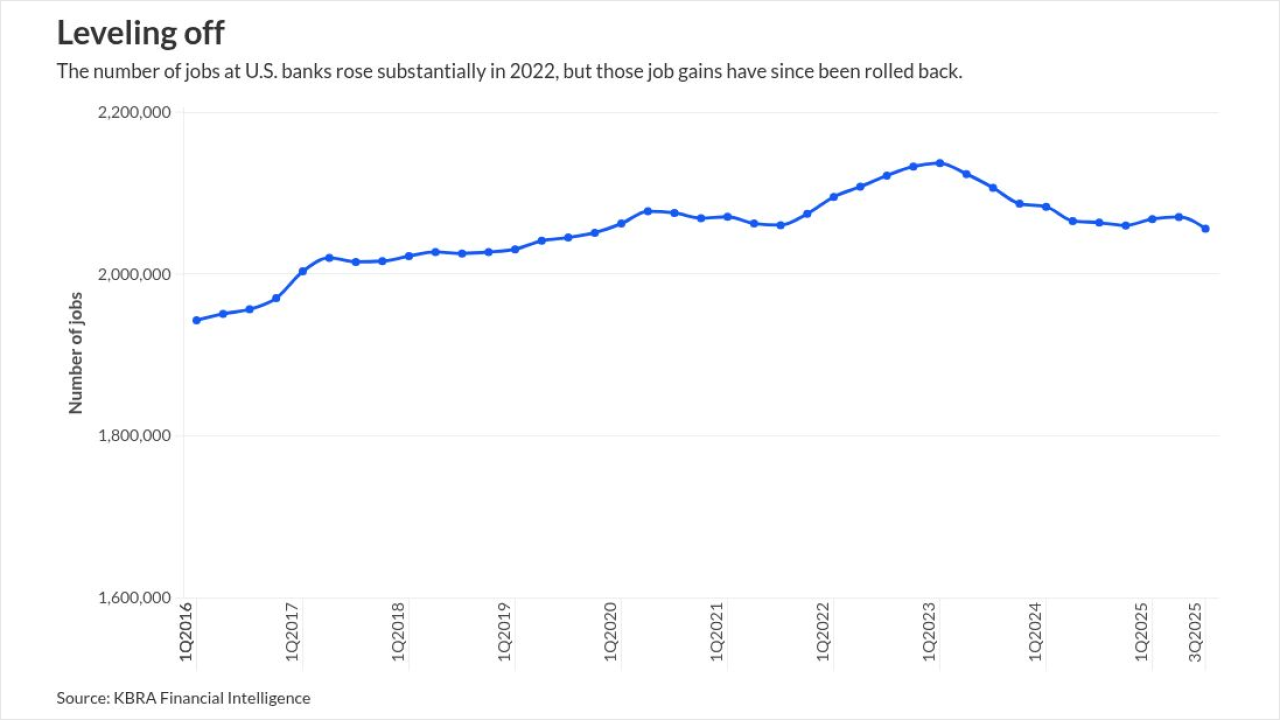
One of the best parts of speaking regularly to banker groups is watching in real time when a topic really connects. You can see people leaning in and smiling when it's something they've experienced or observed themselves.
In a recent talk, I brought up what I think is one of
It's a bubble that usually forms almost invisibly around leaders. Not by design, but by nature. The more responsibility you have, the more your days are spent with people who either report to you or have a vested interest in keeping you happy.
Over time, pieces of everyday reality stop making it to your desk or inbox.
And I've long suspected that many leaders' "favorite" subordinates develop a knack for keeping bad news from reaching the boss. Sometimes that's fine — if they can handle an issue themselves. But sometimes … not so much.
What usually gets the biggest laugh is when I tell folks, "Hey, I don't blame you for enjoying that bubble. You earned it."
You've fought through more problems, crises, difficult customers, tricky employees and industry shake-ups than you can count.
Now you get to work in a world where people smile when you walk in, laugh at your jokes, nod at your stories, and compliment almost everything you say, do, or wear.
And let's be honest — that's pretty nice. I don't blame anyone for enjoying the fruits of their labor.
The truth is, however, that the real world outside the bubble is where our businesses either thrive or struggle. If we're not, at least every now and then, rolling up our sleeves to handle a crisis, jumping in to solve a problem ourselves, or personally pitching our products and services to a potential customer, we start to lose touch.
I like to kid very senior managers that if they've been to more "leadership retreats" than sales calls in the past year, that bubble may be present.
Even at the
It's easier to end up there than you might think.
Now, that might seem to fly in the face of a leader's instinct to empower their teams.
True, the role of a leader is not to make all important decisions or (heaven forbid) "micromanage" their teams.
But there is a clear difference between empowering and trusting others and becoming detached from the everyday challenges our teams deal with.
Comfort can quietly turn into disconnect.
Whether addressing a large audience or interacting with individual employees, the most effective communicators are those who leave their audience feeling a little smarter for having listened to them.

The longer we stay inside the bubble, the easier it is to miss the signals our teams, customers and markets are sending us. And when those signals finally reach us, they're often more urgent and more expensive to address.
"Popping the bubble" doesn't mean abandoning trust or micromanaging. It means maintaining habits that keep you grounded in the real world.
Be on the front lines often enough that people don't treat your visit like breaking news.
Strive to have and protect a "We don't shoot the messenger" policy that encourages honest questions and feedback from the field.
Personally handle a problem customer now and then.
Few things are more valuable to a leader than hearing honest feedback directly from the people we actually work for, especially when not everything is hunky-dory.
Join a sales call every so often. There are scant things that are more grounding than meeting a potential customer personally and explaining why they should choose you.
And if they go in another direction? That reality check (and ego check) can be just as valuable.
I often tell leaders that if it's been a long time since a prospective customer told them "No, thanks," they may not really be in the game anymore.
They might be watching the game. They might be coaching the game. But to stay at peak performance, it helps to actually get back in the game now and then.
Beyond the continued professional development these practices provide, there's an equally beneficial personal branding aspect.
Teams tend to respect and trust leaders who go out of their way to remain both approachable and involved.
Teams sense when a leader steps in and steps up even when they could easily avoid it.
Leading by example is more than a nice slogan. It's a proven strategy.
Avoiding the bubble isn't about doing more work — it's about making sure the work you do keeps you truly connected to your team, your customers and your business.





